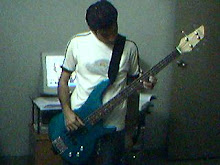A diya, divaa, deepam, or deepak is a lamp made usually of clay, with wick made of cotton and dipped in ghee or vegetable oils. Clay diyas are temporary and are used for special occasions, while diyas made of brass are permanent fixtures in homes and temples. Diyas are native to India, and are often used in Hindu, Sikh, and Jain religious festivals such as Diwali. A similar lamp called a butter lamp is similarly used in Tibetan Buddhist offerings.
This light has much deep meanings and is of strong significance in the Ismaili sect of the religion of Islam. According to Surah Noor (24), Verse 35 of Quran: "Allah is the light of the heavens and the earth; the likeness of His light is as a niche in which is a lamp, the lamp is in a glass, (and) the glass is as it were a brightly shining star, lit from a blessed olive-tree, neither eastern nor western, the oil whereof almost gives light though fire touch it not-- light upon light-- Allah guides to His light whom He pleases, and Allah sets forth parables for men, and Allah is Cognizant of all things."
A light which is being represented for the "Nur" of God should be used as it is. Changing its form and using torches and other forms of light might cause a sense of disrespect towards it. We should be very much careful about it!
Sunday, April 11, 2010
Monday, January 4, 2010
Technology in the last decade
Ray Kurzweil, a recognized innovator and futurist, stated that at the current rate of progress, the entire 21st century would be equivalent to 20,000 years of progress in the 20th century! According to Sydney J. Harris, journalist and author: "The real danger is not that computers will begin to think like men, but men will begin to think like computers".
Travelling down memory lane and wondering over how our lives have been changed by technology in the past 10 years, one couldn't help getting the feeling that somehow that decade has been more about information technology changing our lives, far more than we had anticipated.
By July 2009, the number of mobile phone users in Pakistan grew to 95 million subscribers from less than 2 million in 2002. More interesting, however, is that over 58% of the poverty-hit populace owned a mobile phone.
Access to basic technology is no longer a status symbol. The focus has shifted from earning the opportunity to own and use technology, to the prerogative to choose among technology products. Previously, having a computer and a nice and stable internet connection was not a priority. Now it's a necessity.
We continue to perform the same tasks, facilitated by technology; and though now we have updated versions of technologies from our past, they will soon become obsolete - this time, in less than 10 years!
Travelling down memory lane and wondering over how our lives have been changed by technology in the past 10 years, one couldn't help getting the feeling that somehow that decade has been more about information technology changing our lives, far more than we had anticipated.
By July 2009, the number of mobile phone users in Pakistan grew to 95 million subscribers from less than 2 million in 2002. More interesting, however, is that over 58% of the poverty-hit populace owned a mobile phone.
Access to basic technology is no longer a status symbol. The focus has shifted from earning the opportunity to own and use technology, to the prerogative to choose among technology products. Previously, having a computer and a nice and stable internet connection was not a priority. Now it's a necessity.
We continue to perform the same tasks, facilitated by technology; and though now we have updated versions of technologies from our past, they will soon become obsolete - this time, in less than 10 years!
Subscribe to:
Posts (Atom)

